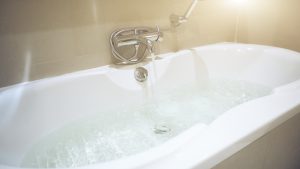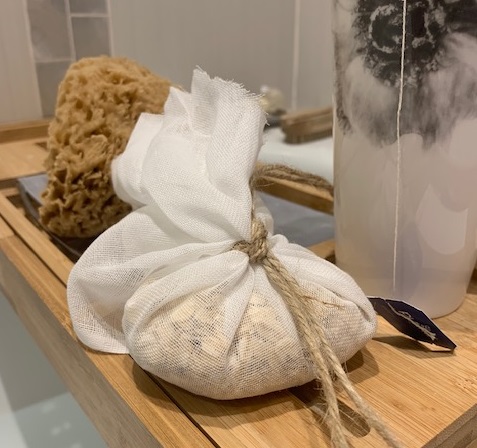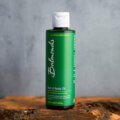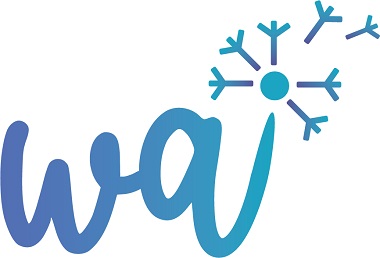Are hot baths good or bad for people with eczema? All the advice points to avoiding hot baths at all costs and instead having cold or luke warm baths.
However in my experience a luke warm bath is a very poor consolation for a lovely hot one.
And on the contrary, I find a really hot bath, almost as hot as I can bear to get into, is actually much better for my skin that a colder one. Why?
I’m not sure.

Perhaps because my eczema is very much triggered by foods, so perhaps the heat of the bath makes my body sweat out the toxins it’s trying to rid itself of faster.
Maybe the sores that get infected heal quicker… Or does the hot water kill off bacteria on my skin that otherwise might take hold and leave nasty yellow infected bits which can then spread if you’re not careful.
Maybe it’s the tea tree oil I add to the bath that also helps. I add a few drops to aid healing.
Epsom salts or any salt in the bath can also help with healing and I find this really does work.
What I wanted to know was, do you avoid hot baths or find they really help your eczema skin?
Please, please be careful though, I would hate to make anyone’s skin worse for trying this and finding their skin was painful and they got really itchy. I’m just interested and intrigued to find out whether it’s just me.
I don’t find the hot bath makes me more itchy at all, maybe the pain of the hot water helps… who knows. Maybe I’m just weird.












Well Ruth, you aren’t alone. A number of people I know enjoy a hot bath to ‘relieve’ their itch. When I would have bouts with eczema a few years back, I too enjoyed the hot water. BUT… there is a huge down side.
When you expose your already compromised epidermis, to water over 100F, you are further damaging your skin. This sets you up for the likelihood of more bouts of eczema and possible infection. It becomes the ‘eczema cycle’. It’s a short term benefit with very long term set of bad potential outcomes.
Every dermatologist I’ve spoken with understands the ‘false sense of easement’ that the hot water bath provides. The euphoria that follows the hot-water treatment is not unlike that experienced when an itchy piece of skin is scratched.
Endorphins are released at the beginning stage of the skin irritation; what we call ‘scrathing’. Endorphines, not histamines! as some have stated, are released. You DO NOT WANT histamines to release -they create itching and swelling; not relief. And that is precisely WHY you should NOT scratch for ‘relief’. Because there is a fine line between the euphoric senstaion of endorphine release – and the triggering of histamine release; what happens when you continue to scratch!
As stated earlier, it’s a very short-termed relief shrouded inside of a very unwanted long-term reaction.
The ‘relief’ – period is followed by pain and damaged skin. Epidermal damage begins at 44C (111F). Healthy skin exposed to a temperature of 150F (65C), will instanatly become a 1st degree burn; a 2nd degree burn in 2 seconds!! The skin of someone under the throws of eczema DO NOT have healthy skin. So damage comes quicker, and lasts longer.
The potential for infection rises exponentially. Consequently, Dermatologists and doctors serioualy advise people to NOT expose their damaged and susceptible skin to hot water. above 95F.
I found out that my ‘hot baths’ were causing my horrible pain and anxiety. I stopped and within a couple of weeks the cycle of pain was stopped. I’m still a candidate for eczema with exposure to chemicals, but I have not had the problem in several years.
I hope this has helped.
YOSAKIME –
I really think my hot bath, and I do add cold, prob about 30 ish is not so hot to damage but hot enough to kill germs. I know it makes my skin better and not worse. Positive.
Ruth …
Water of 86F (30C) is not ‘hot’ water. It is warm water. Water at that temperature IS soothing and not damaging to skin: even sensitive skin. So, I do agree with you that water at that temperature would have a beneficial and therapeutic effect.
However, you are not killing ‘germs’ at a temperature of 30C (86F). Actually, the term, ‘germ’, is a colloquial, non-scientific terminology for pathogenic bacteria that cause disease; bacteria or virus in origin.
How hot does water need to be to kill germs/pathogenic bacteria?
Surface sterilization; to kill and remove germs; is called autoclaving. The temperature of water used in autoclaving is boiling, 212F (100C). Some few germs are killed at temperatures as low as 160F(71C). However, water temperatures below 140F (60C) do not kill germs of significance to infection.
Thus, if you are using water in the 30C (86F) then you cannot be killing any germs, but you are warming them. This, unfortunately, offers them an increased opportunity for growth, but, it DOES NOT kill them.
Some bacteria are killed at temperatures around 140F (60C), but such bacteria rarely lead to infectious problems and are not pathogens.
YOSAKIME
Thanks for your comment Les, very interesting. I wonder if it’s the whole thing for, the steam does seem to sweat out some toxins, I exfoliate so perhaps that helps more than I realise and the tea tree and epsom salts just add to the healing. It’s just more fun with the water a little hotter, or should I say warmer. I never have the water hot enough to actually burn my skin. On another note Les, is your blog still working? Been getting some odd emails from you…
I find cold water soothes me, as hot just softens the skin and then leads to it being more irritated later, especially any open skin if it’s cracked/blistered. It’s interesting reading Les Booth’s comment – makes a lot of sense! Seems like hot water soak is a temporary relief, akin to scratching. The cold water provides some initial relief (although I am a sucker for a cold dip, lake swimming and that lot, so a cold shower can be quite lovely if the mood takes you!) and I wonder if the stimulation to your circulation would be good for your skin in the long term anyway? My eczema is largely brought on by stress as well as being connected to a gluten intolerance.
Cool definitely soothes. I’ve just been to spa hotel and the combination of steam rooms and then getting under a cold shower really helped my skin. It seems to cleanse and invigorate the skin. Maybe my hot bath is not ever so hot and it’s the tea tree and salt I use that help, but I find the hotter baths help more than the cooler ones. And they don’t leave you shivering… if I’m covered in eczema and hives however the colder the better – horrible in the extreme but really calms the angry redness down.
Hi, hot showers are the best and if you can direct a jet stream onto the itchy area the better. Instant relief that lasts. Reduce the cold temp until hot water starts to hurt but not enough to burn. A bit like getting into a bath that’s a little hot. moisturise or steroid cream. Take a couple of showers a day. After suffering for over 60 years I got relief. Doctors will say not to take hot showers but do not offer any relief from the itch. Salts in a bath is good with seawater better if you are able to soak for severals hours a week. I hope this helps
I too find the doctor’s advice on this one isn’t right for me. I just LOVE a hot shower and a not bath for my eczema. Not sure why it helps but it kind of does.
Hi. I was interested in discussions around eczema and hot baths, since I came across some information which stated that sweating is an integral part of healing eczema. This has been promoted by Dr. Seo Hyo-seok, who is the director of the Pyunkang Korean Medicine Hospital, and who has a series of articles recently being published on healing eczema. He also says that healing the lungs are key to skin health, as well as general immunity. I wonder what others have to say about his ideas…
http://bit.ly/1N2YVNW
A hot bath is DEFINITELY an eczema trigger for me. This was verified recently during my recoveryfrom a hemerrhoidectomy. During recovery I took many warm baths during the day. I noticed that the areas on my shin that are subject to eczema flared up during this time and would burn and erupt if my bath water approached what I would call hot vs. warm temps. Since I couldn’t really avoid the baths as they were very necessary for my comfort after the surgery, I decided I would sit in the bath with my feet up on the side of the tub, keeping the hot water away from the areas that were prone to erupting in eczema. This definitely helped and allowed me to keep the water a little warmer which felt very good.